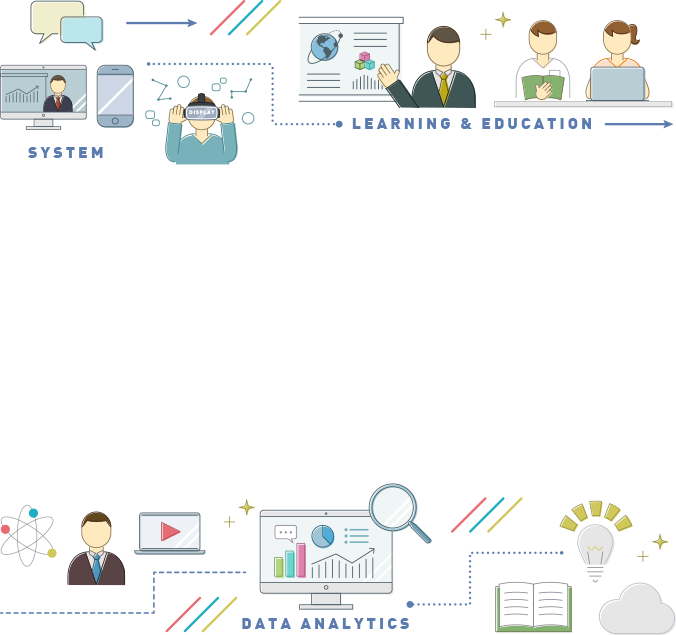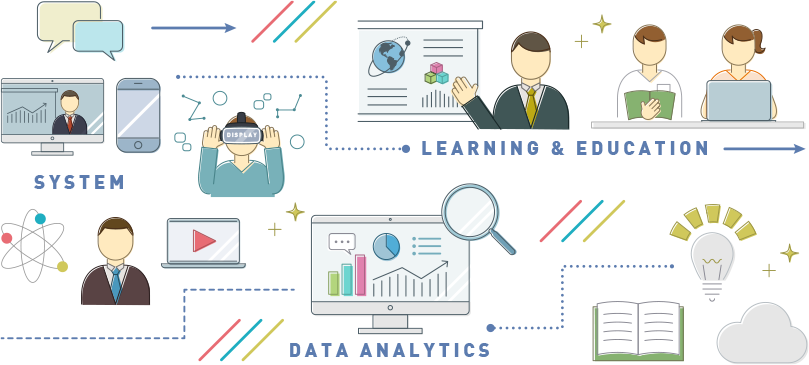Hello everyone, this is Geng Gakuwang from D3.
In this article, I would like to share with the following paper which we read in this English seminar.
Title:Social comparison in learning analytics dashboard supporting motivation and academic achievement
Journal:Computers and Education Open
Volume:4
Page:1-11
Publication Year:2023
Authors:Damien S. Fleura, Wouter van den Bos, Bert Bredeweg
With the proliferation of new technologies, the amount of data about learners and the learning environment is growing rapidly. Learning analytics (LA) is one means of utilizing learning data and optimizing it for learning; of LA, dashboards are defined as the organization and visualization of learning data into one or more screens in order to elicit learning awareness. Many dashboards are designed with the assumption that the awareness aroused will naturally lead to learning adjustments. However, learner awareness of learning does not always lead to self-regulated learning. Therefore, learners need to be motivated to use learning strategies or to change their behavior in order to promote awareness about learning.
Social comparison is believed to influence learner motivation. Social comparison is believed to allow individuals to generate accurate assessments of their own abilities and performance by comparing themselves to others. The authors note that prior research suggests that learners were motivated to work harder and facilitated learning outcomes when using a “comparison dashboard” equipped with social comparison features. However, the motivational impact of social comparisons, even comparisons, depends on a variety of factors. For example, there are two types of comparison orientations: upward-oriented comparisons (comparisons with better people) and downward-oriented comparisons (comparisons with worse people). Downward-oriented comparisons may have a negative impact on motivation and performance, although they exert less pressure for self-improvement than upward-oriented comparisons. The authors cite the results of a meta-analysis by Gerber et al. (2018), which identified three factors that could influence upward-oriented comparisons.
1. comparators are more strongly motivated when they are perceived as similar or familiar with their own social background, age, and other attributes
2. the degree of difference between the comparators and the learners themselves: comparisons with others who are slightly better, but not markedly different, are more motivating and have a positive impact on learning outcomes
3. the effect on motivation is inversely proportional to the number of comparators. The greater the number of comparisons, the less interest people have in comparisons
In light of the above, this study investigated the impact on motivation, metacognition and learning outcomes of a comparison dashboard that incorporates an appropriate small number of comparisons and a slight upward-oriented comparison component.
The social comparison feature of the dashboard displays the current grades of the student and the nine students closest to his or her grade (higher or equal to the grade). In addition, the goal-oriented feature of the dashboard shows the student’s predicted final grade in the form of a normal distribution. To investigate the impact of this comparative dashboard, the authors conducted two comparative experiments with undergraduate students at a Dutch university. Students were randomly assigned to experimental and control groups. Students in the experimental group had free access to the dashboard through a learning management system. On the other hand, students in the control group do not have access to the dashboard. Details of the specific experiments and analyses are given in the table below.
As the result of analysis, the authors conclude that in both experiments, the comparison dashboards improved extrinsic motivation and learning outcomes. On the other hand, there were no statistically significant effects on metacognition or mediating effects on extrinsic motivation. Regarding these results, the authors speculated that learners may have adjusted their learning behavior in some way that could not be ascertained. The authors also explained that the results of this study suggest that encouraging extrinsic motivation in learners with low interest in the material can have a positive impact on cognitive engagement and subsequent learning outcomes.
Below are some thoughts from me. First, the idea of incorporating social comparison into the dashboard as a factor that influences motivation in self-regulated learning is very informative regarding the design of the dashboard. In addition, the issue with this study is that it is not clear what behavioral changes were elicited by the use of the dashboard and how this relates to increased motivation, so it is important to evaluate the effectiveness of the dashboard from a behavioral level, not just from the self-report method. We felt that it is important to evaluate the effectiveness of the dashboard from the behavioral level as well as the self-report method. We believe that future research and educational practice should explore the effective use of dashboards with respect to their development and application, including social comparisons.
These are the contents of this article. Research on the impact of social comparison dashboards on self-regulated learning has the potential to have a significant impact on the way we teach and support learning in educational settings. It is hoped that the results of such research will be used to continue efforts to support self-regulated learning in the future.







